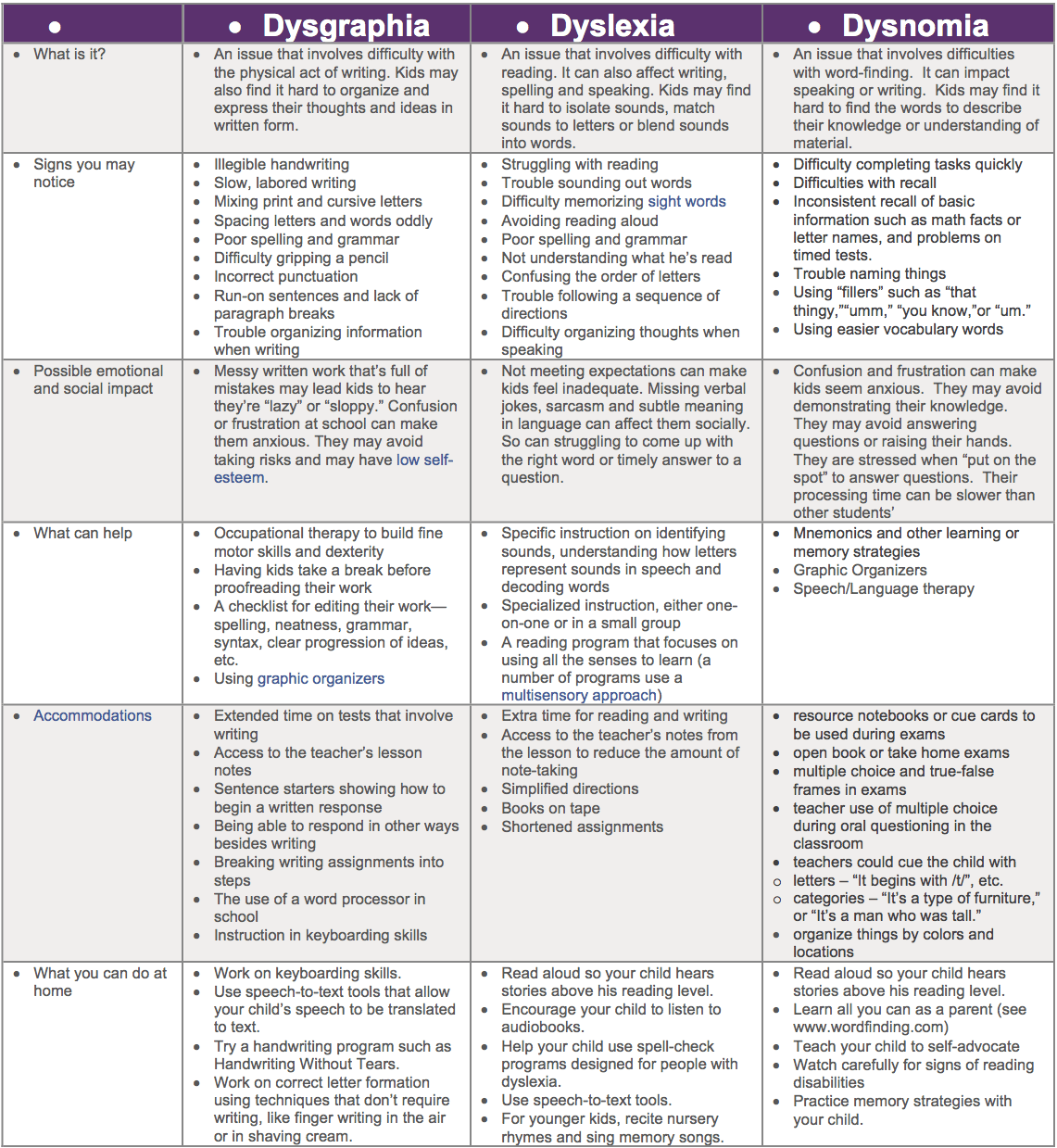Different Learning Disabilities with similar names
You’ve just met with your child’s physician, psychologist, speech therapist, or school. Suddenly, people are using a number of terms to describe what’s going on with your child. It can seem like they are speaking another language!
What is a parent to do?
Often, when parents and professionals meet to discuss a child’s learning concerns, it is a confusing process. Parents may find it hard to learn the different types of learning disabilities, especially if the meeting is also focused on recommendations for school, medication, or life strategies. To make it more confusing, many children have more than one learning disability. Unfortunately, all of this confusion can make it very hard for parents to advocate well for their child. If you are reading this article, hopefully it will help summarize the different types of common learning disabilities, their symptoms, and ways that parents and teachers can help.

Simply put, Dyslexia, Dysgraphia, and Dysnomia are all learning disabilities
Dyslexia primarily affects reading. Dysgraphia mainly affects writing. Dysnomia impacts a child’s language. While they’re all different issues, they are easy to confuse, and often occur together. They also tend to co-occur with Attention Deficit Hyperactivity Disorder.
The table below can help illustrate some of the differences, as well as the things that parents and schools can do to help. If you click on it, it will enlarge the table for you.

If your child is struggling with reading, writing, or language, it is always important to listen to your instincts. Even more importantly, if you feel like your child’s abilities are not being met, or she is not achieving up to her full potential, get more information. You can talk to your child’s teacher, pediatrician, or psychologist.
Where does a neuropsychological evaluation fit in?
Many times, neuropsychological evaluations, when done by a Clinical Psychologist or another Learning Disability Specialist, can be very helpful in terms of understanding your child. Evaluations can also provide recommendations to help advocate for her in the school system. Finally, the psychologist or learning specialist will meet with you individually to review the test results and explain your child’s diagnoses to you.
Never be afraid to ask questions or ask for reading materials! It is important that you are able to advocate and support your child. Please don’t hesitate to contact us if we can be of any further help or support at 319-358-6520.
*This table is adapted from one composed by Kate Kelly on this website.
**Thank you to Stephen Allen Photography for the image.
![]()
